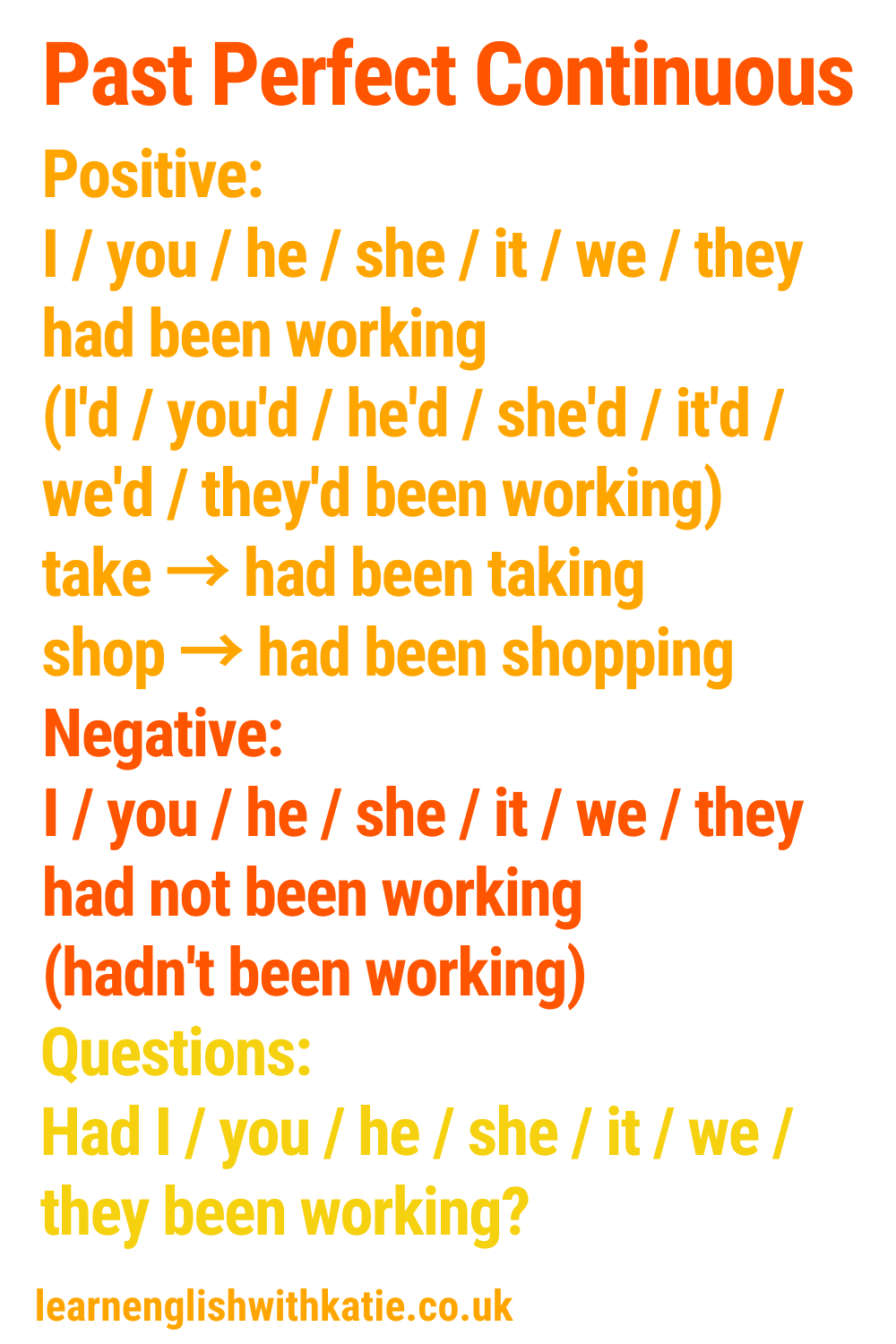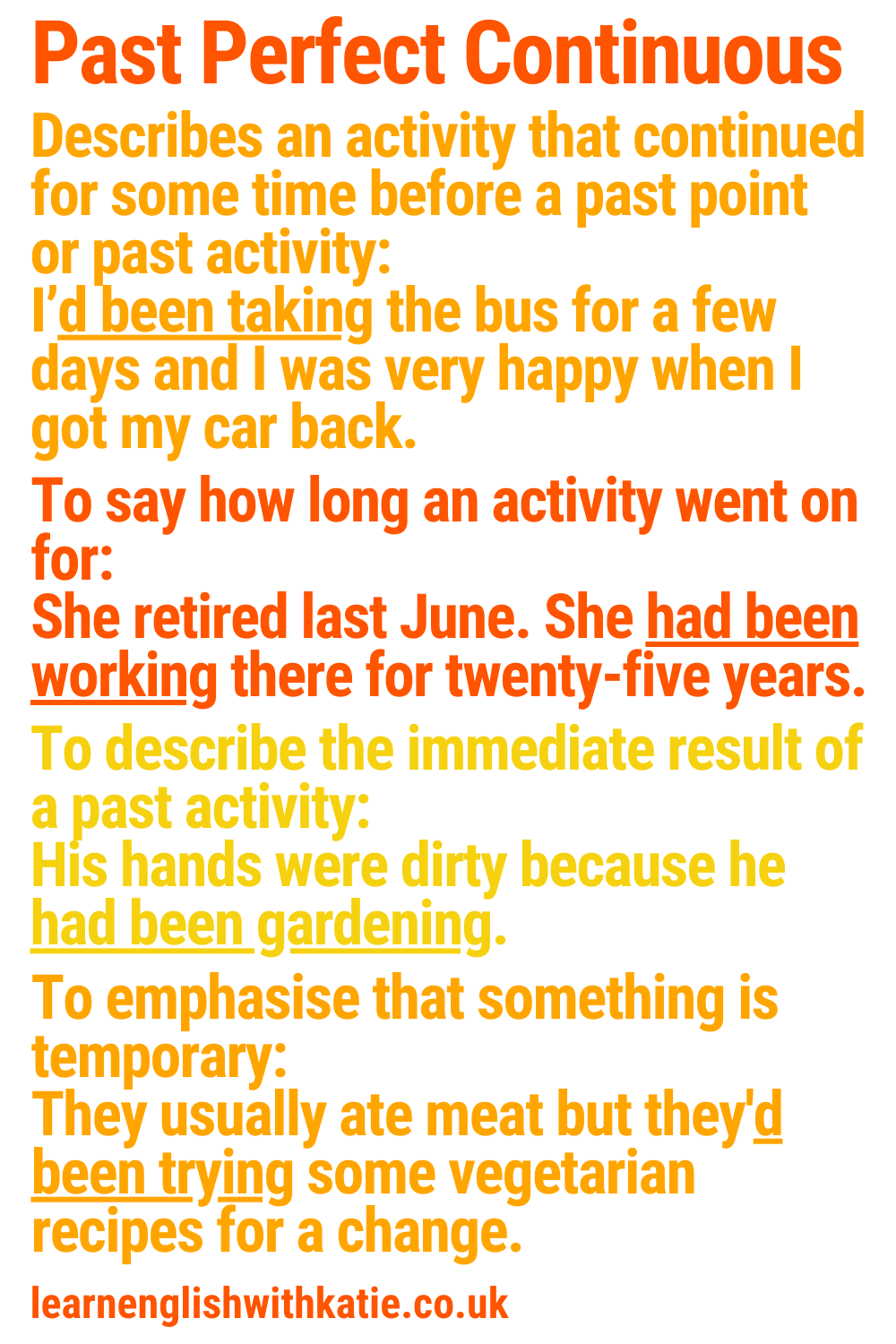|
This tense is a combination of past continuous and past perfect. The perfect part is because there is a link between two different past times and the continuous part indicates that the action continues for some time. If you haven't studied the other past tenses yet, you can find them here. Or click "read more" to learn about the past perfect continuous. Formation past perfect continuous = had + been + ___ing Positive: Work: I / you / he / she / it / we / they had been working (Or: I’d / you’d / he'd / she'd / it'd / we’d / they’d been working) Take: I / you / he / she / it / we / they had been taking Negative: Work: I / you / he / she / it / we / they had not been working (I / you / he / she / it / we / they hadn’t been working) Take: I / you / he / she / it / we / they had not been taking Questions: Work: Had I / you / he / she / it / we / they been working? Take: Had I / you / he / she / it / we / they been taking? Uses 1. The past perfect continuous always describes an activity that continued for some time before a past point or before another activity started: I’d been taking the bus while my car was still at the garage and I was very happy when I got it back. He had been working from home that day but he turned the computer off to have dinner with his wife. 2. To say how long an activity went on for. It might be finished at that point or it might not: She retired last June. She had been working there for twenty-five years. (Finished.) By 4 o'clock, he was getting angry. She was late and he had been waiting for an hour. (Not finished.) (Often with “for” or “since”.) 3. To describe the immediate result of a past activity: Her eyes were red because she had been crying. His hands were dirty because he had been gardening. 4. To emphasise that something is temporary or new: She'd been staying with her parents for a few days. They usually ate meat but they'd been trying some vegetarian recipes for a change. Common mistakes 1. He was tired when he got home. He was working hard all day. ❌ He was tired when he got home. He had been working hard all day. ✔️ Use the past perfect continuous, not the past continuous because we are talking about two different times. 2. I’d been knowing him for years. ❌ I’d known him for years. ✔️ You can’t use past perfect continuous with non-action verbs. 3. I was tired because I had working hard. ❌ I was tired because I had been working hard. ✔️ Don’t forget to include “been”. 4. The film had been starting when I arrived. ❌ The film had started when I arrived. ✔️ You can’t use the past perfect continuous for short actions. 5. I had been listening to the song ten times. ❌ I had listened to the song ten times. ✔️ Use the past perfect continuous to say “how long” but use the past perfect to say “how many”. Have you tried my past tenses quiz yet? Click here to test your knowledge. If you would like free lessons sent to your email inbox, plus tips for learning English, click the button below and sign up:
0 Comments
Your comment will be posted after it is approved.
Leave a Reply. |
About the blogFollow the blog for mini lessons and tips on how to improve your English. Categories
All
Archives
July 2024
|


 RSS Feed
RSS Feed
